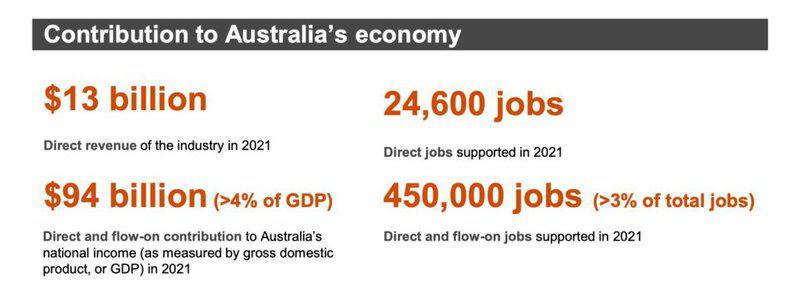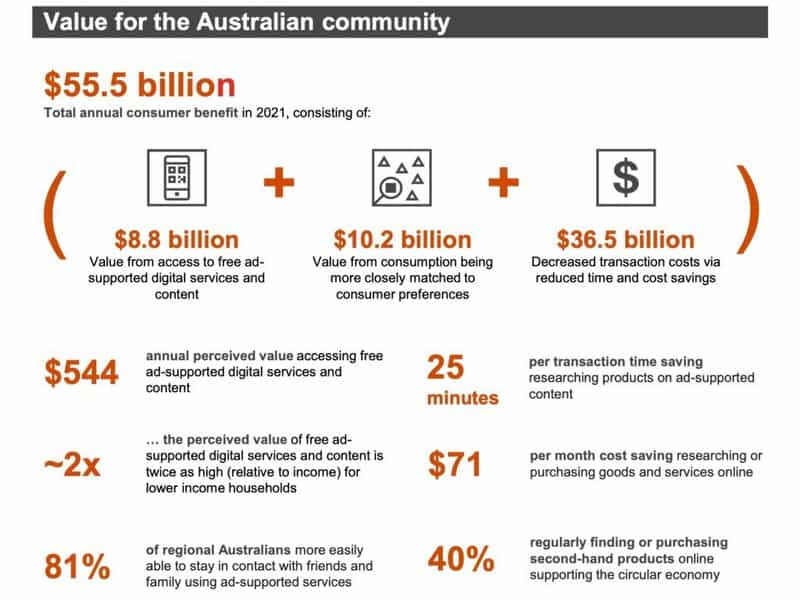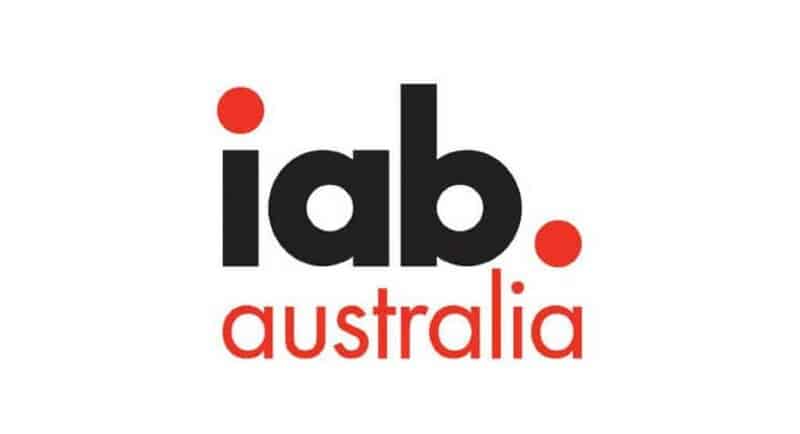IAB Australia commissioned the Ad’ing Value report, prepared by PwC, which found that Australia’s digital advertising industry plays a significant role in the economy and society.
The new report released found the industry is responsible for contributing a total economic value of $94 billion to GDP and supporting over 450,000 jobs.
It confirmed the industry’s total contribution is the equivalent of over four per cent of GDP and over three per cent of total employment in Australia in 2021-22.
The report also found that the social value of the consumer benefits generated by the ad-supported digital ecosystem was $55.5 billion in 2021.

Gai Le Roy, IAB Australia CEO, said: “Digital advertising is a key driver of the Australian economy. It creates new opportunities for businesses to grow, provides consumers with billions of dollars’ worth of value and will be critical for our economic recovery in the wake of COVID-19.”
The ad-supported digital ecosystem is central to modern society. In 2021, more consumers were online than ever before: 99 per cent of all Australian adults had access to the internet, 91 per cent of Australian adults had a home internet connection, and three-quarters of these had an NBN connection.
Where consumers led, businesses followed – in 2021, over two-thirds of all advertising in Australia was digital.
Small and medium business benefits
Ad’ing Value found that small and medium sized businesses have received particular benefit from digital advertising, providing smaller businesses with more ways to access consumers wherever they are in Australia. SMEs receive 61 per cent of the sector’s business benefits and 44% of digital advertising spend now comes from small businesses. This activity drives further value, supporting productivity and long-term economic growth across the Australian economy.
IAB Australia CEO Le Roy added: “Our sector is particularly important for the SME sector. SMEs rely on digital advertising to reach consumers across Australia and this ultimately benefits consumers, who are saving money and getting more value from their purchases.”

Gai Le Roy
Consumer and society benefit
For Australian consumers, digital advertising has enabled the delivery of an expanding online ecosystem of information, news, and entertainment content as well as social and search services, free of charge which is highly valued by consumers.
Ad’ing Value found the average Australian consumer’s perceived value of access to currently free ad-supported digital services and content is $544 per annum. This equates to provision of a benefit of $8.8 billion to consumers annually in ad-supported digital content and services and $1100 per household.
The IAB Australia report also found that the digital ad-supported online ecosystem benefits society more broadly: it strengthens and connects communities, provides increased access to job opportunities, education, and financial information as well as entertainment content and supports a thriving second-hand marketplace.
78% of consumers indicated that digital content and services enable them to stay in contact more easily with friends and family, increasing to 81% in regional areas.
Critically, ad-supported online content and services were found to be most important to lower-income consumers with those on annual incomes below $50K reporting the value they attribute to content and services that are currently free as roughly double that of consumers with annual incomes of $80K and above.
“This report shows the huge value that digital advertising provides to the community through free ad-supported content and services, freely available news and information, the ability to connect with others as well as transactional savings – totalling a whopping $55.5 billion. There is no doubt the main winners are consumers.” Le Roy said.
The digital advertising industry includes:
• media channels from broadcast television to video on demand services, gaming, news media, podcasts, and streaming radio and digital out of home.
• Organisations providing supports service including direct to publisher and self-service platforms, ad servers, ad networks, programmatic technology providers, measurement and analytics, data and data management platforms and optimisation technologies.
• Agencies which provide planning, buying, management and design service (media and creative services)

Key Findings of Ad’ing Value report
The benefits generated by the ad-supported digital ecosystem include:
• Contributes $94 billion to GDP
• 450,000 jobs in total ~ 24,600 directly
• 44% of digital advertising comes from SMEs, with SMEs receiving 61 per cent of the sector’s business benefits
• $55.5b consumer benefit comprising
• $8.8 billion value from access to free ad-supported digital services and content
• $10.2 billion value from consumption being more closely matched to preferences
• $36.5 billion decreased transaction costs via reduced time and costs
• $544 annual perceived value accessing free ad-supported digital services and content. This equates to provision of a benefit of $8.8 billion to consumers annually in ad-supported digital content and services and $1100 per household.
• 25 minutes savings per transaction by accessing ad-supported digital content and services to research products before purchase, equating to $15.9 billion in time savings annually
• $71 per month cost savings from researching or purchasing goods and services online
• $14.7 billion annual total consumer savings from increased competition between suppliers
• 40% regularly finding or purchasing second-hand products online supporting the circular economy
• 81% of regional Australians more easily able to stay in contact with friends and family
• Use of ad-supported services also rose significantly during the COVID-19 pandemic, including online video content (36%), social media (32%) and digital news services (32%).
• For consumers on annual incomes below $50K, the value they attribute to content and services that are currently free was roughly double that of consumers with annual incomes of $80K or above.
